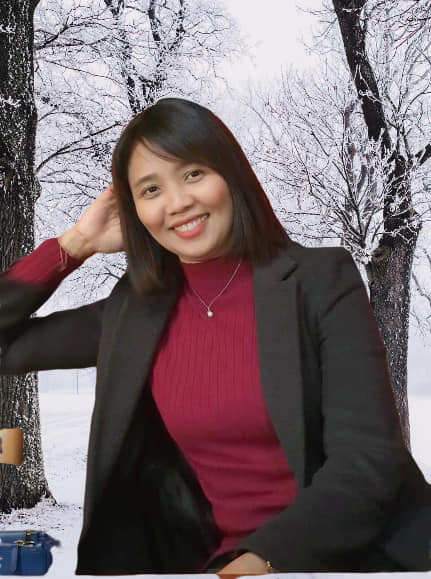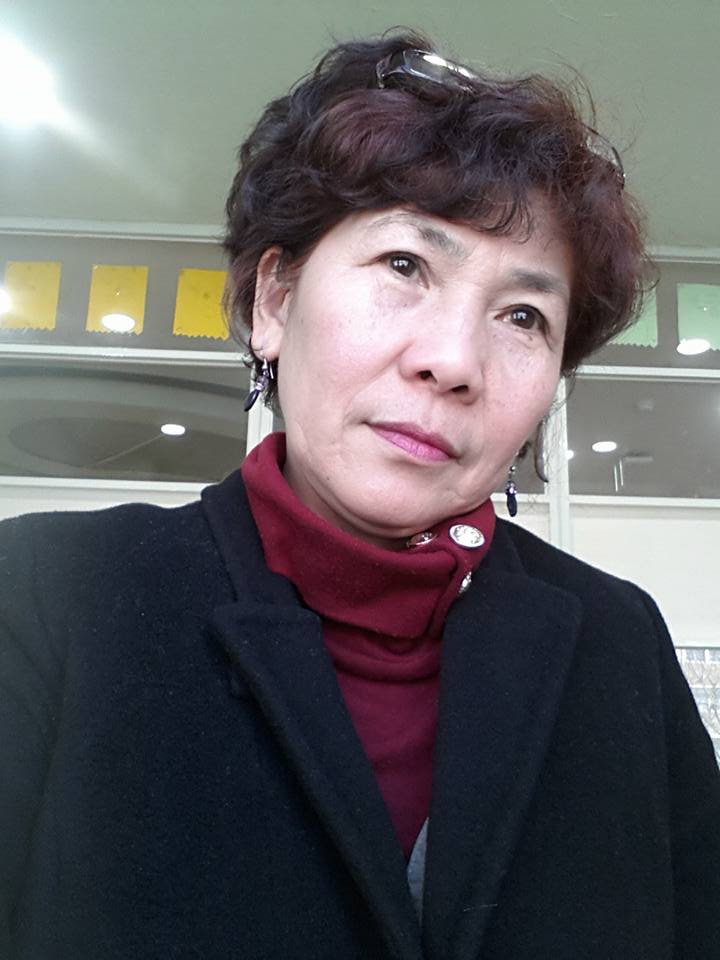The Challenges of Teaching English as a Filipina
Compiled by Dr. David E. Shaffer.

Filipino English teachers in Korea occupy a somewhat unique position. Although English is the primary medium of instruction from elementary school through university in the Philippines, and even though English is one of the two official language of the nation, the Philippines is not among the seven countries that South Korea recognizes as “native English-speaking countries.” Although many Filipinos are eloquent English speakers, this distinction serves to create an undue bias against Filipino English speakers without regard to English proficiency. From the accounts of numerous Filipina English teachers in Gwangju appearing in last month’s Language Teaching article (“the Joys of Teaching as a Filipina”), we saw that there are a multitude of joys that Filipina teachers reap from teaching English. However, those were not their full accounts. What appears below is the other side of the coin, related by the same Filipina teachers who expressed their love of teaching in last month’s article. This is the rest of their stories.
It Takes a Lot of Prayer
“Emma” has lived in Korea for 25 years and has been teaching English for the past two decades. She teaches elementary students at two academies in two districts of Gwangju. In our last issue, she talked about the joys that she gets from teaching and that “God gives us different gifts; I just have to use mine and do the best I can in teaching my students.” Here is the rest of her account.
To be honest, one of the difficulties I have with the students is managing them, particularly my sixth-graders. Maybe it’s because of my stature or my overly friendly personality. It takes a lot of prayer and patience to have a successful class with them, but I think teaching is difficult only if you aren’t equipped with the right skills and don’t like to be with a bunch of kids.
Fortunately, I don’t have any major problems with the administration at either of my schools, except that both of my bosses hide my Filipino identity from the students’ parents, which is quite burdensome to me.
One of the Struggles
Mary Joy Escobal is a missionary volunteer at the Gwangju Dream Seventh Day Adventist Multicultural Church located in Gwangsan District. She has been living and working in Gwangju for almost two years. She teaches English through the Bible to young learners and a Bible class to adult Filipinos. She previously talked about the difficulty of learning English and the “really great joy for me to teach children.” Here is the rest of her account.
One of the struggles I encountered with the children was their quarrelling with each other. At first, I didn’t notice because I thought they were just talking, that is, until one of them burst out in anger and I didn’t know how to stop them. One student went home crying, and the other is no longer participating in our class. I felt so hopeless at the time, but I just prayed for guidance on how to deal with the situation. God answered my prayers. He directed me to talk to our pastor, so I told him what had happened. The pastor talked to the students’ parents as well, and the next class the students met again. It now seems as though nothing had happened between them; they’re on good terms, helping each other in some of the class activities that we have.
Thorns in a Bed of Roses

Malyn Perez Rosales Kim is an after-school English teacher in Gwangju at Juwol and Shinam Elementary Schools. Before coming to Korea, she taught elementary school in the Philippines. She has been living in Korea for nearly eleven years and has been teaching for eight of them. Last issue, she told us that she knows that God has a plan for her and that she “loves teaching kids.” Here is the rest of her account.
The first months after my arrival seemed to be the saddest of my life, as Korea was absolutely different from my life in the Philippines. Life here is so fast, with a focus on merely working and money. Some part of me wanted to magically return to my homeland.
After more than a year had passed, an opportunity came: a project from the Office of Education offering immigrant women a two-month study program leading to teaching their culture at elementary schools here in Gwangju. I was able to be a part of this program and to share with young students the culture of my country. From this great start, I was able to gain confidence and the will to pursue a teaching career in Korea. I worked in an English academy for a year, but since it required late-night teaching and was quite competitive, I applied for an after-school English teaching position. Applying for the position was not easy. I had to ask my spouse to help me with the paperwork, and after passing the first screening, I needed to pass an interview and conduct a demonstration class.
Being hired as an after-school teacher does not mean that there are no thorns in the bed of roses. In my first year of teaching, with my rudimentary Korean skills, I found it hard to chat with my co-workers, understand meeting agendas, and submit reports. In addition, some of the students were afraid of their foreign teacher, and communication through phone calls or messages with my students’ parents regarding their child’s behavior in class is still problematic.
“They Have a Weird Accent”

Princess Joy F. Cedeño teaches at an English academy in the Suwan area of Gwangju where she teaches elementary and middle school students. She also does private tutorials with elementary and middle school students and housewives. Joy has been living in Korea for nine years and has been teaching for the past eight. In last month’s issue, she talked about joining different groups to improve her teaching skills and how glad she is to see how Koreans are now changing their perspectives toward Filipino teachers. Here is the rest of her account.
“They have a weird accent.” “They don’t speak that well.” These are some of the things that I hear from Koreans, but then they seem shocked once I open my mouth and speak because I don’t sound like their stereotypical Filipina. Many Koreans have told me that I have an American accent. I don’t really know how to feel about hearing this. For me, learning a second language is not about having a perfect native-like accent. I believe that accent isn’t a measure of intelligence or character, so it shouldn’t be used as a measure of our identities.
However, it hasn’t always been easy for me as a teacher. As a Filipina new to English teaching, I experienced a lot of rejection due to my nationality because most English academies here prefer to hire native English speakers. It was really difficult competing with teachers from major English-speaking countries like the US, the UK, and Canada because academies here prefer to have English teachers who have white skin, blue eyes, blonde hair, and of course, a “good” accent. At first, I didn’t really care about my accent, but because of the rejections, I decided to try to change how I spoke in order to fit the mold.
I guess it worked, as employers now seem to like my accent and some academy directors have even asked me to hide my nationality and pretend to be Canadian or American. This I didn’t like to do because I felt insulted and thought it was too unfair. I asked them why they wanted me to do this, and their response was that Korean mothers would like for their children to have native English-speaking teachers. I was devastated and wanted to give up on teaching, but there were people who believed in me – those who believed in my capabilities to excel in this field. Therefore, I decided to work even harder to enhance myself so that I could prove to them that we Filipinos can also be excellent teachers. I know that there are many Filipino teachers who are extremely responsible and hardworking. We just need a chance and acceptance. I know that we can also rock the world. I also believe that my nationality isn’t a hindrance to reaching my goals.
“Where Are You From?”

Sherryl Sambo has lived in Korea for 12 years and has been teaching EFL for seven. She teaches elementary and middle school students at an English academy in the Suwan district of Gwangju and tutors businessmen and government officials. In the last issue, Sherryl shared how she realized that she felt compelled to do master’s and doctorate study in order to compete in the English field. “I believe that we should invest in ourselves and know our worth,” she told us. Sherryl is the president of the Filipino English teacher’s group in Gwangju. Here is the rest of her account.
As a foreigner in South Korea, I thought teaching English would be a career path. I soon realized that there’s more to teaching than meets the eye. I felt the need to further my education for several reasons. Besides increasing my foundation in teaching, I felt it would help me become more competitive in the intensely competitive English teaching market in Gwangju. It is very common to see online job advertisements for “native speakers only,” which I have always felt bad about since I believe that qualifications for a teaching position should be based more on the applicant’s competencies than on their nationality or skin color.
I can recall several incidents in applying for big academy positions like this one: The director and I were having a great phone conversation; I could tell that he really liked me. Then he asked the golden question: Where are you from? I told him that I was originally from the Philippines but had been living in Korea for 11 years now and had Korean citizenship. After hearing that, he said that he was surprised that I was from the Philippines because I had a “good accent.” His voice changed, and he said that he would give me a call. And as expected, he never did. If he had not asked where I was from and had relied on my qualifications instead, there was a good chance that he would have hired me. But because of my heritage, I was not given a chance for a personal interview and demonstration class.
Before I landed my current job, my current boss told me she had already interviewed two “white teachers,” but decided to call me and give me a chance because my credentials looked interesting and because she had studied and worked in the Philippines for a couple of years. She also knew that educated Filipino teachers can teach well. I got the job, but at first my boss wanted to give me a lower salary than my native-speaker co-teacher. However, I stood my ground and insisted that my stronger qualifications deserved higher compensation. She finally agreed. There I now teach elementary and middle school students and facilitate comprehension, reading, and TOEFL classes.
I Wanted to Give Up

Sabel Lee has been living in Gwangju for 21 years. She has been an English educator since 2001 and is also a mother and married to a Korean. She was a high school teacher in the Philippines before coming to Korea. Sabel has taught at English academies and English camps. She presently works with multicultural children out of the Buk-gu District Youth Center, which she enjoys very much. Here is the rest of her account.
After five years of teaching, I became involved as a human rights volunteer. Needing to supplement my source of income, I applied to different schools, but they wouldn’t hire a full-time Filipina teacher, only offering me a position for “after-school studies.” I felt very sad and discriminated against, so I enrolled in a one-year TESOL course at Chonnam University. Afterwards, I had the opportunity to teach in a summer camp. The native speakers were given two classes a day, but I was given only one because I was a Filipina, making me feel as sad and as disappointed as before.
This sort of thing provided me with a lot of stress. I wanted to give up, but how could I – my whole family were educators. Fortunately, I have regained my confidence in teaching and now teach speaking skills to Korean women at the Buk-gu District Youth Center. I have taught at the Youth Center for eight years now and have “peace and security” – I have found respect and recognition as an educator.
In Conclusion
We have seen how these Filipina English teachers so wholeheartedly enjoy teaching and enjoy working with young learners. However, we have also seen that this “does not mean that there are no thorns in the bed of roses.” Too much emphasis is placed on ingrained stereotypes rather than on a person’s merits. Rather than looking for a blonde-haired, blue-eyed North American with a bachelor’s degree, employers should be looking at prospective teachers’ educational background, teaching skills, and language proficiency.
“But Filipinos have an accent” might come the retort. Yes, but everyone has an accent, whether English is their mother tongue or a second language that they might have learned. Some native English-speaker accents are more difficult to understand than any Filipino’s English accent that I have encountered. In this rapidly diversifying world, where the number of non-native English speakers already far exceeds the number of native speakers of English, it is advantageous for the language learner to be familiar with a variety of English accents, as the likelihood of being in situations where English is needed to communicate with a non-native speaker will continue to increase.
Another stereotype that needs to be shattered is that all North Americans are native English speakers (or even that all North Americans speak English!) Many may be surprised to know that 20 percent of U.S. residents speak a language other than English at home. Possibly even more surprising is the fact that English is the mother tongue of only 58 percent of Canadians.
These faulty stereotypes need to be buried, and English-teacher selections need to be based on educational background, teaching skills, and language ability (in both English and Korean) rather than on nationality, residence, and physical features. If this were more often the case, we would have more Filipinos happily teaching English in Korea, we would have an increase in high-quality English teachers in Korea, and we would have an upgrade in the quality of English being taught and learned in Korea. This is the rest of the story.
Photographs courtesy of Malyn Perez Rosales Kim, Princess Joy F. Cedeño, Sabel Lee, and Sherryl Sambo.
_________________________
Gwangju-Jeonnam KOTESOL
Upcoming Events
Check the Chapter’s webpages and Facebook group periodically for updates on chapter events and online activities.
For full event details:
- Website: http://koreatesol.org/gwangju
- Facebook: Gwangju-Jeonnam KOTESOL
__________________________________________
The Editor
David Shaffer, as vice-president of the Gwangju-Jeonnam Chapter of KOTESOL, invites you to participate in the teacher development workshops and their regular meetings (in-person and online). He also invites you to visit “Gwangju Filipino English Teachers (GFET)” on Facebook. Dr. Shaffer has been a resident of Gwangju and professor at Chosun University for many years. He is a past president of KOTESOL and is currently the chairman of the board at the Gwangju International Center as well as editor-in-chief of the Gwangju News.







